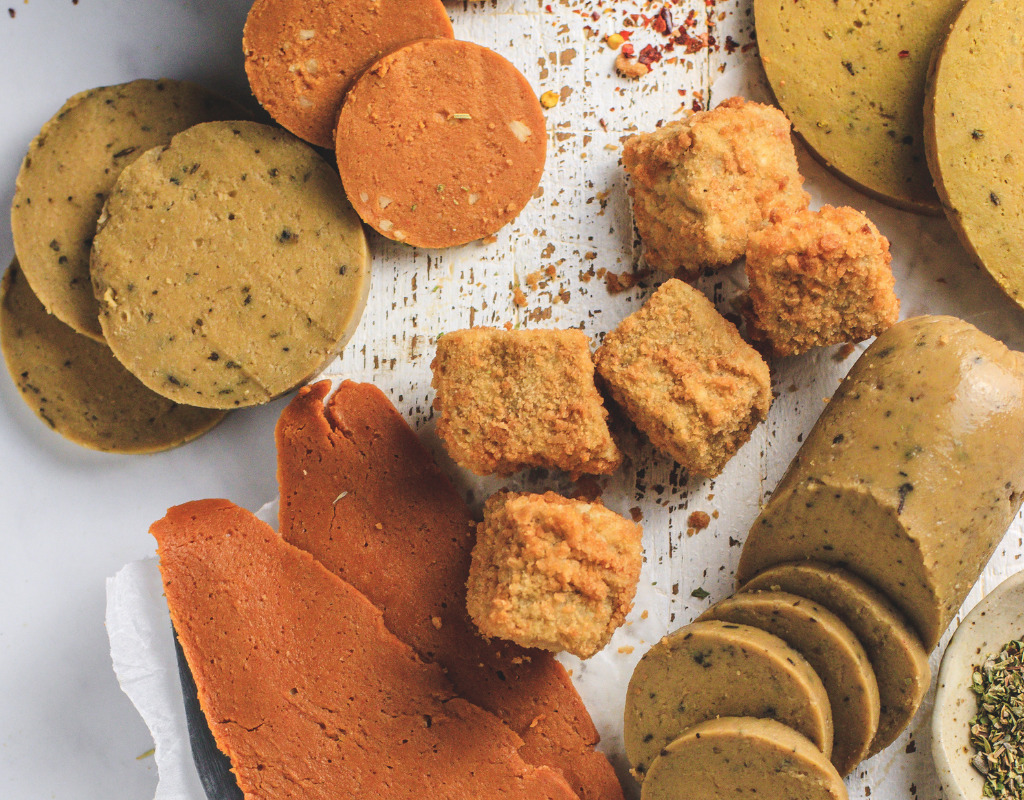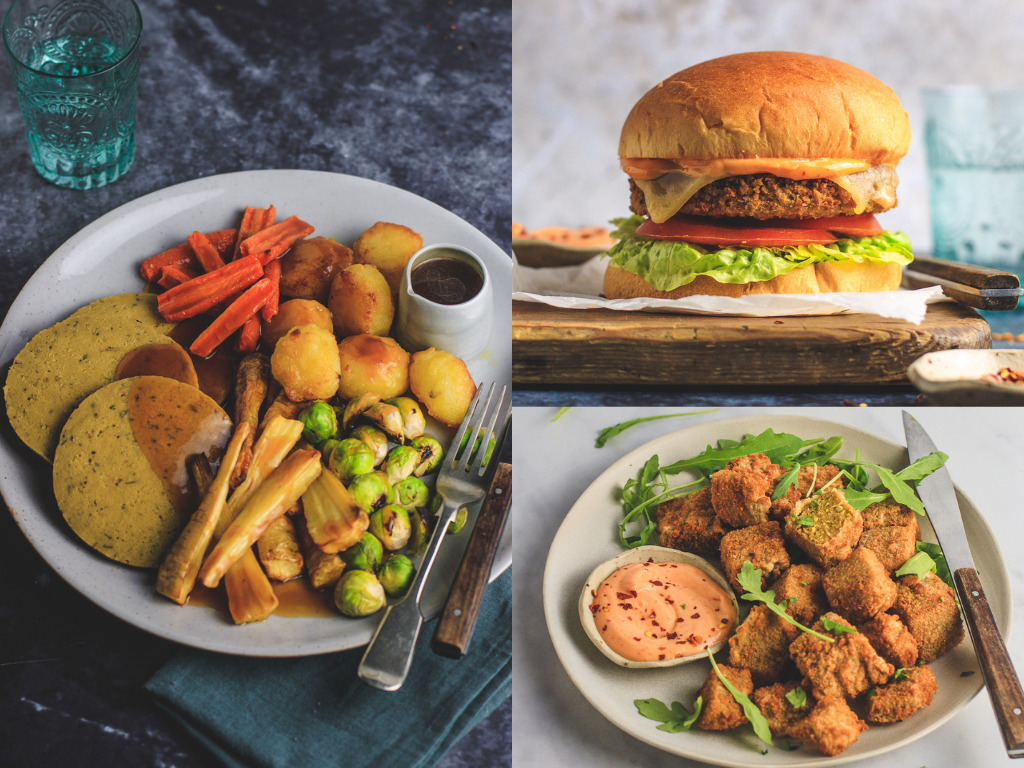3 Mins Read
According to new research conducted by carbon footprint analysts Thrust Carbon, compared to traditional meats and dairy products like beef, lamb, cheese and chicken, wheat gluten, also known as seitan and developed using gluten, the main protein of wheat, has a comparatively lower carbon footprint.
Released by the U.K.-based LoveSeitan, which manufactures seitan-based products, the data highlights the carbon footprint of seitan compared to lamb, beef, cheese, chicken and tofu.
The research reveals that LoveSeitan’s products contain only 46.6kg of CO2 emissions for every 100kg of seitan and compared to that, beef releases a massive 6,000kg of CO2 emissions for every 100kg with lamb a close second producing 2,400kg of CO2e emissions per 100kg on an average.
In addition, the data shows that dairy cheese and chicken score extremely low on the rankings with cheese producing 2,100kg of CO2 emissions per 100kg and the latter releasing 600kg of CO2e emissions per 100kg.
With respect to plant-based foods, all have a lower environmental footprint but some cross even seitan, like tofu produces 300kg of emissions per 100kg making seitan one of the most sustainable products of all time and to celebrate this, the first-ever ‘World Seitan Day’ will be held on October 18 and honour the first person to ever coin this term – George Ohsawa, from Japan.
In a press release seen by Green Queen, co-founder of LoveSeitan, Steve Swindon said that the analysis gives a perfect understanding of why seitan is so much better for the environment than animal-based products. “Our seitan is higher in protein, lower in fat, and 130 times more sustainable than beef. We expect this new data will make people think twice before choosing beef, lamb, chicken or cheese for their next meal. Of course, we recommend seitan as the perfect alternative – it’s healthier and has a tiny carbon footprint comparatively.”

Our seitan is higher in protein, lower in fat, and 130 times more sustainable than beef. We expect this new data will make people think twice before choosing beef, lamb, chicken or cheese for their next meal
Steve Swindon, co-founder of LoveSeitan
Swindon added: “If you really care about climate change and carbon emissions, just remember than you can have 130 seitan burgers for the same carbon footprint as one beef burger. Let that one sink in for a bit! We would also like to take this opportunity to thank the analytics team at Thrust Carbon for their diligent and thorough research on this project. Uncovering and sharing this type of data is very important as it gives consumers the knowledge they need to make informed choices.”
If you really care about climate change and carbon emissions, just remember than you can have 130 seitan burgers for the same carbon footprint as one beef burger
Steve Swindon, co-founder of LoveSeitan
For every 100g, LoveSeitan’s products provides 28g protein and just 1.2g fat and contains B12 and has low sugar and salt.
Read: China Is Increasing Imports Of Brazilian Beef And The Amazon Rainforest Is Paying The Price For It
Given the growing concerns about the meat industry and the livestock diseases it breeds, recent research showed that consumers, especially the younger generation are trying out plant-based meat brands and turning flexitarian leading to the plant-based beef segment growing exponentially over US$16 billion by 2030.
Elsewhere, another seitan food tech company Blackbird Foods recently raised US$1.5 million to help expand this plant-based alternative as well as its vegan hand-tossed frozen pizzas that will contain plant-based cheese.
Lead image courtesy of LoveSeitan.




